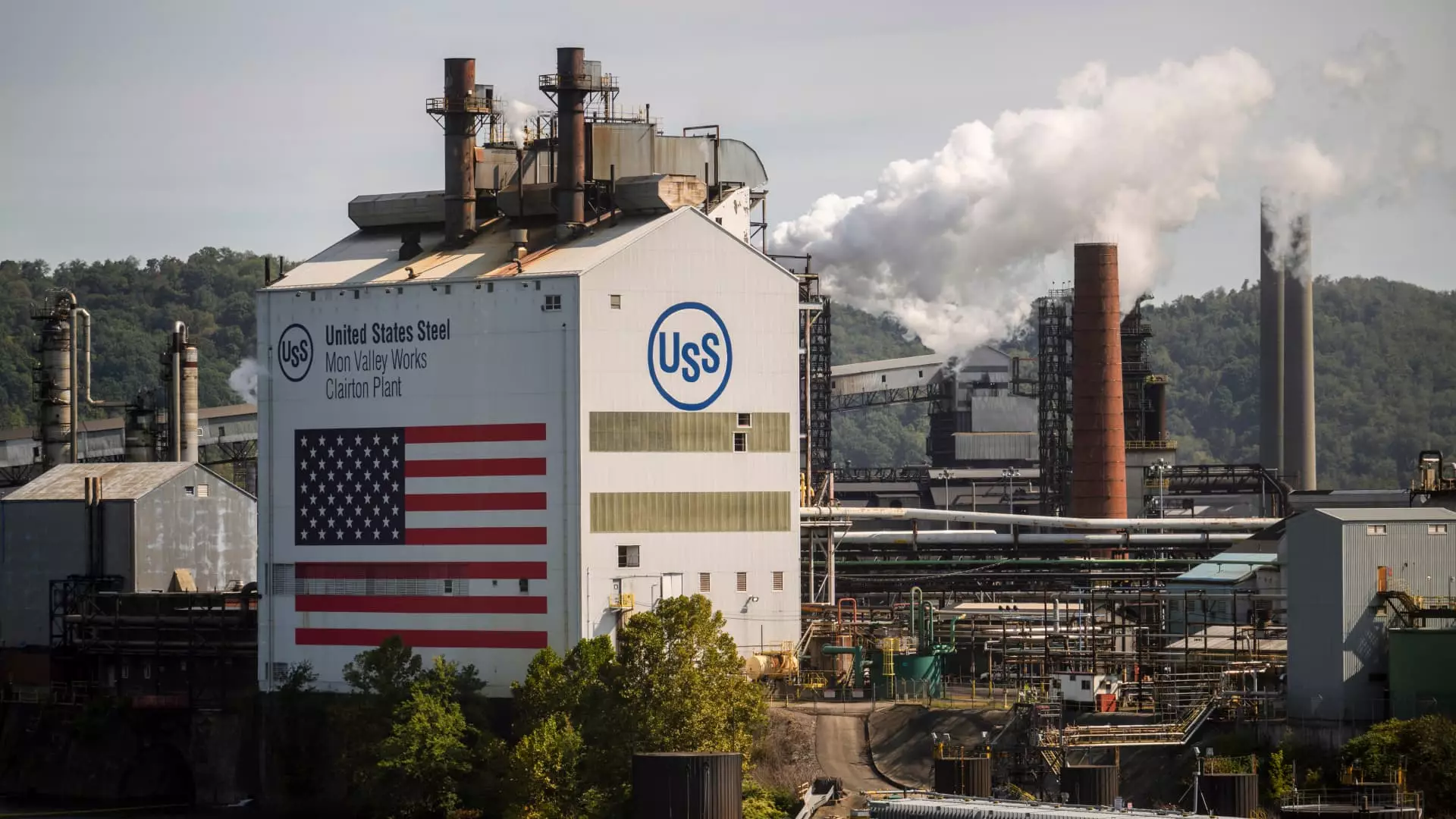The ongoing machinations surrounding the proposed merger between U.S. Steel and Nippon Steel encapsulate a troubling tableau of political maneuvering at the intersection of business and national security. The Trump administration’s recent filing to extend critical deadlines in this legal saga suggests a deeper game at play—one where the interests of corporations can, at times, overshadow genuine national security concerns. What is particularly alarming is the apparent willingness to override previous decisions based on electoral considerations rather than substantive evaluations of security risk.
The lawsuit against the Committee on Foreign Investment in the United States (CFIUS) filed by U.S. Steel and Nippon Steel not only raises questions about the motives behind the merger’s rejection under President Biden but also signifies a potential hazardous precedent. When companies challenge government decisions on the grounds of political bias, it opens a Pandora’s box concerning the balance of power between private enterprise and public policy. It indicates a disturbing era where capital can court political favor more aggressively, sidestepping objective evaluations.
A Shift in Perspectives
Trump’s recent comments hinting at a willingness to permit Nippon Steel a minority stake in U.S. Steel could further complicate the narrative. It suggests that economic influence in the political realm might make for strange bedfellows, as evidenced by the relationship between the government and private corporations. Those in favor of deregulation and corporate consolidation might herald this as a positive development, but the implications for labor rights and fair market practices are far from rosy.
The timing of these developments also raises eyebrows. The allegations by U.S. Steel and Nippon Steel that Biden’s administration improperly influenced the CFIUS verdict for electoral gain illuminate a dangerous blend of politics and corporate interests. Despite the legal framework designed to protect national security, the fog of electoral expediency casts a long shadow, suggesting that democracy can too easily bend to corporate strategy, particularly in “swing states” where the stakes are high for political operatives.
Power Dynamics and the U.S.-Japan Relationship
The potential collaboration or competition between American and Japanese companies reflects wider economic trends and shifts in power dynamics. While some may tout this as a gesture of international cooperation, the reality is layered with complexities. If this merger does eventually go through, will it pave the way for further Japanese investments in the U.S. steel sector, or will it merely serve as a stepping stone towards heavier foreign influence in critical infrastructure?
While economic ties between the U.S. and Japan are essential, the motivations behind such partnerships should warrant cautious scrutiny. In an age where global leadership is increasingly defined by strategic economic alliances, the fusion of corporate and geopolitical agendas is seldom transparent. Allowing a foreign entity—no matter how seemingly benign—greater power over a staple American industry could have unforeseen consequences, especially for domestic workers.
As the Trump administration and U.S. Steel navigate these murky waters, it’s vital for the public and policymakers alike to remain vigilant. The stakes are too high to let business interests hijack the sanctity of national interest and security. What is unfolding is not just a legal issue but a referendum on the integrity of American democracy itself.



Leave a Reply